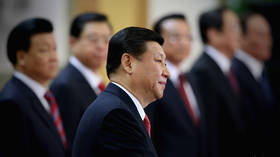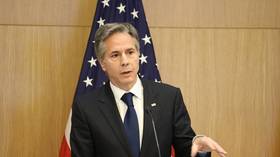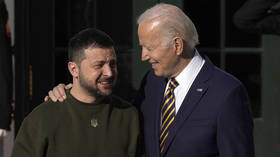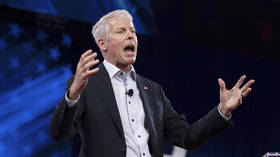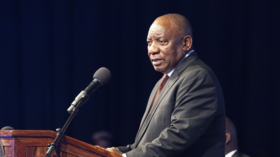Chinese think tank predicts when Ukraine conflict will end – Nikkei
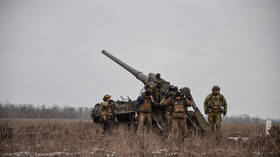
A top Chinese think tank close to the nation’s armed forces has predicted that the Russia-Ukraine conflict will end before autumn of 2023, Japan’s Nikkei newspaper reported on Tuesday, citing sources close to the Chinese government. Beijing considered the assessment solid enough to try to assume the role of a mediator in the standoff before it potentially ends, the media outlet claimed.
The assessment was issued by the Academy of Military Sciences (AMS), a Beijing-based think tank that reports directly to the Chinese People’s Liberation Army and regularly issues recommendations to China’s top military decision-making body. The AMS issued its appraisal of the conflict as early as in December, Nikkei said. The newspaper added that the think tank’s view that an end to the hostilities was likely relatively imminent prompted Beijing to take a more active role in seeking a resolution.
The AMS forecast based on a military simulation of the ongoing conflict suggested that it would “draw to a close around summer 2023,” with Russia “having the upper hand,” Nikkei claimed, citing sources close to the Chinese government. The think tank believes that both the Russian and Ukrainian economies would be hard pressed to sustain the hostilities past the summer.
The AMS analysis prompted Beijing to come up with a peace proposal, the Nikkei claimed. With this initiative, China sought to restore relations with Europe to ensure the continued flow of investment and technologies to the Chinese economy, the media outlet said. Another of Beijing’s goals was to maintain friendly relations with Kiev, the paper suggested.
“Along with Russia, we can’t afford to lose Ukraine,” a Chinese government source told the media outlet. The Nikkei also claimed that Beijing was contemplating sending economic aid to Kiev as part of its peace plan.
Success in the mediation efforts would also help China assume a more prominent position in the eyes of Global South, Nikkei said, calling it another reason behind the initiative. To achieve this, Chinese President Xi Jinping is considering a visit to Moscow, the paper claimed.
Beijing has not officially announced any such plans. The Wall Street Journal reported on supposed preparations for a visit in late February. According to the media outlet, Xi may come to Moscow in late April or early May in an attempt to push for multi-party peace talks.
“The visit to Russia can’t come too soon or too late,” a Chinese source told Nikkei, commenting on the potential visit. According to Nikkei, the “best scenario” for China would be for Russia and Ukraine to start talks right after Xi’s trip to Moscow.
China unveiled its 12-point plan to resolve the Ukraine conflict in late February. It included calls for resuming peace talks, condemned unilateral sanctions, and upheld the sovereignty and territorial integrity of all nations.
Moscow welcomed Beijing’s efforts aimed at resolving the conflict, while the West has largely brushed off the initiative. NATO Secretary General Jens Stoltenberg said that China didn’t have “much credibility” in the issue. US State Secretary Antony Blinken, however, then said that the plan does include some “positive elements.”
